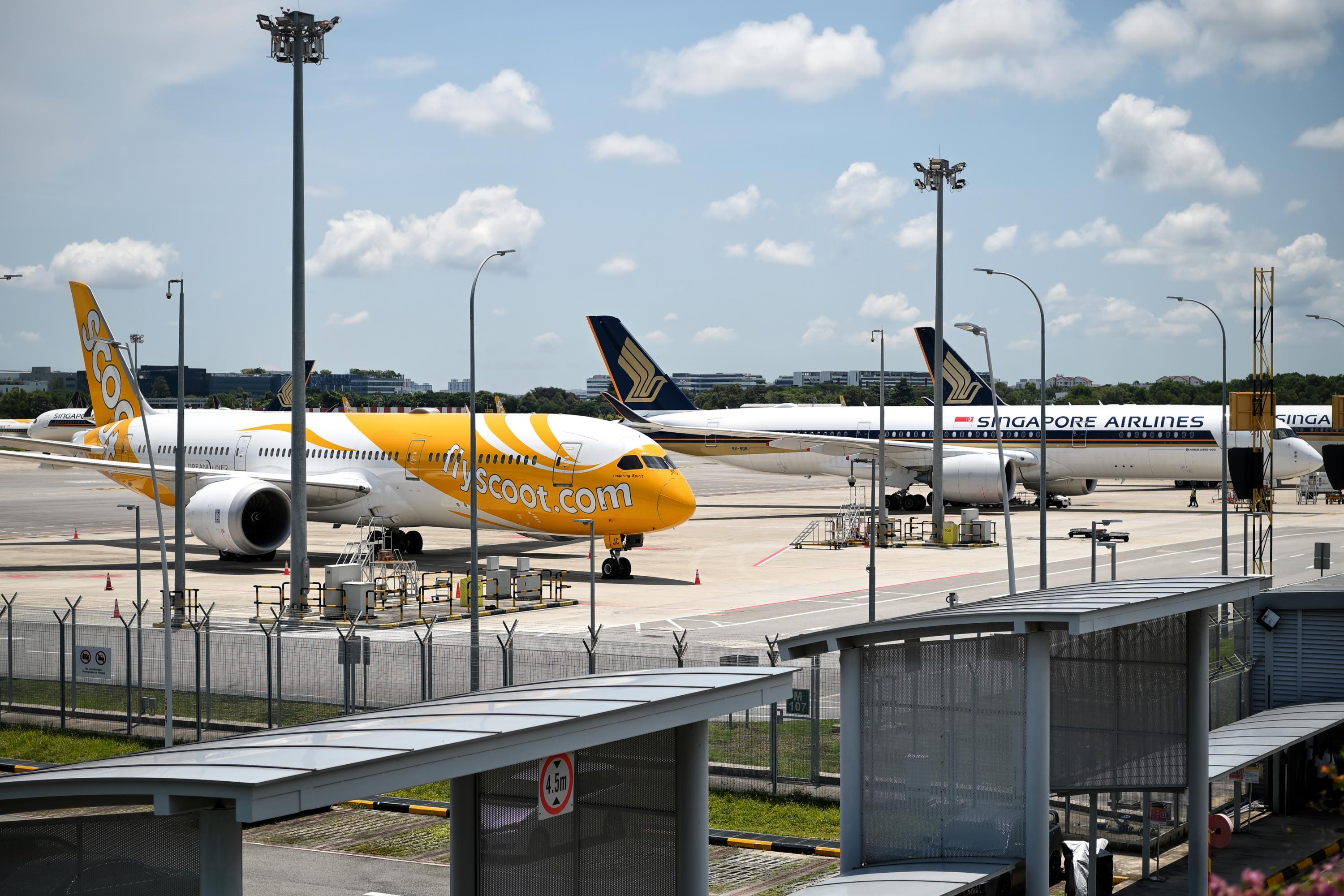SIA, Scoot flights to use sustainable aviation fuel made from cooking oil, animal fats
Sign up now: Get ST's newsletters delivered to your inbox

The use of greener aviation fuels is expected to reduce about 2,500 tonnes of carbon dioxide emissions over the one-year pilot scheme.
ST PHOTO: KUA CHEE SIONG
Follow topic:
SINGAPORE - As part of the Republic's efforts to go green, all Singapore Airlines (SIA) and Scoot flights out of Changi Airport will use a blend of refined jet fuel and sustainable aviation fuel in a one-year trial that will start in the third quarter of this year.
This blended fuel will be supplied by American oil and gas company ExxonMobil and delivered to the airport via an existing fuel hydrant system by end-July, said the national carrier and the Civil Aviation Authority of Singapore (CAAS) in a joint statement on Friday (Feb 11).
The use of greener aviation fuels is expected to reduce about 2,500 tonnes of carbon dioxide emissions over the one-year pilot scheme.
Before the Covid-19 pandemic, commercial aviation contributed about 900 million tonnes of carbon dioxide, or about 2 per cent of global carbon emissions, yearly.
ExxonMobil was selected as the vendor for the trial after a request for proposals was put out in November last year. This was a follow-up to a study conducted by the Government and industry players earlier that year on the operational and commercial viability of using sustainable fuels at Changi Airport.
When asked, SIA declined to say how many fuel producers or suppliers were considered as part of the request for proposals, citing commercial sensitivity.
Under the pilot scheme, SIA, with support from CAAS and Singapore's investment
company, Temasek, will purchase the blended fuel from ExxonMobil.
company, Temasek, will purchase the blended fuel from ExxonMobil.
The product will comprise 1.25 million litres of undiluted or unmixed sustainable fuel supplied by Finnish biofuel producer and oil refiner Neste, which will produce the fuel at its refinery in Porvoo, Finland.
The fuel will be made from used cooking oil and waste animal fats.
Neste will then deliver the sustainable fuel to ExxonMobil's Singapore facilities to be blended with conventional jet fuel.
The parties involved did not state what would be the sustainable to conventional fuel ratio in the blend. Blends used by current aircraft engines can have up to only 50 per cent sustainable fuel.
CAAS director-general Han Kok Juan said sustainability will be a key priority in the coming years as air travel is revived and the Singapore air hub is rebuilt.
The sustainable aviation fuel trial is an important building block as it will help validate the use of such fuels and provide insights on costs and potential pricing structures.
SIA senior vice-president for corporate planning Lee Wen Fen said the use of sustainable fuels is critical to the national carrier's goal of achieving net-zero carbon emissions by 2050.
"By collaborating with our partners, we can accelerate and scale up the adoption of sustainable aviation fuels in Singapore," she said.
Changi Airport Group executive vice-president of airport management Tan Lye Teck said the airport is committed to becoming a sustainable air hub, and will work with airlines, industry players and government agencies to drive sustainable fuel adoption.
Transport Minister S. Iswaran told Parliament last year that while sustainable aviation fuels can reduce carbon emissions by up to 80 per cent compared with conventional jet fuel on a life-cycle basis, they are two to five times more expensive.
Mr Iswaran also said that government agencies are studying how Singapore can produce sustainable aviation fuels for both domestic needs and exports, but noted that there are supply constraints.
Meanwhile, the CAAS is also working with aerospace firm Airbus to study whether hydrogen power infrastructure can be deployed at scale at Changi Airport.
The two-year study, which will begin this year, will look at the feasibility of setting up an airport hydrogen hub and the infrastructure requirements to support future hydrogen-powered aircraft operations.

